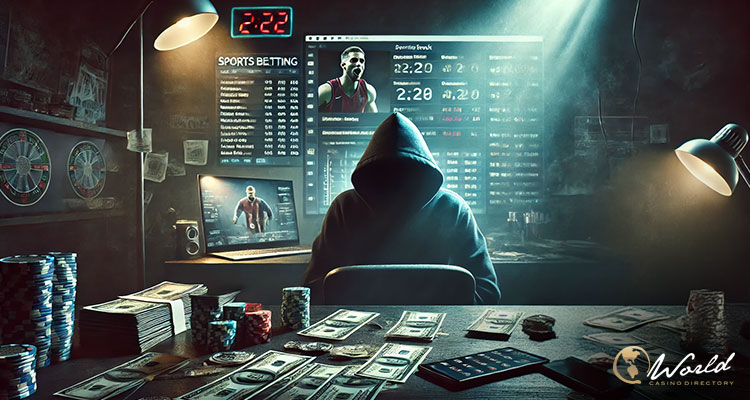Mathew Bowyer, a former bookmaker, has publicly shared his role in a high-profile gambling scandal involving Ippei Mizuhara, the former interpreter for baseball star Shohei Ohtani. For the first time, Bowyer admitted his involvement in a scheme that led to Mizuhara’s massive gambling losses, which ultimately impacted the Los Angeles Dodgers superstar’s finances.
The downfall of a bookmaker and an interpreter’s gambling addiction:
Mizuhara, who had served as Ohtani’s translator from his time with the Los Angeles Angels to his tenure with the Dodgers, now faces serious legal consequences. On February 6, 2025, he will be sentenced in a Southern California federal court, with prosecutors seeking a 57-month prison term, three years of supervised release, and restitution of approximately $17 million. Mizuhara is requesting a lesser sentence of 18 months. This legal proceeding follows the revelation of a fraud scheme that spanned from 2021 to early 2024, in which Mizuhara used Ohtani’s account for illegal gambling activities.
Bowyer, who pled guilty to charges of illegal gambling, money laundering, and filing a false tax return in August 2024, is also facing sentencing. His hearing is scheduled for April 4, 2025—the same day as his birthday. In a recent exclusive interview with The Post, Bowyer detailed how he had become entangled in Mizuhara’s gambling addiction, which he had failed to stop despite recognizing the growing problem. “It was very obvious after some time he was stealing money and not asking Ohtani for permission,” Bowyer admitted.
Mizuhara’s gambling activities, as outlined by federal investigators, involved over 19,000 bets placed between September 2021 and January 2024. The scale of the operation was staggering, with Mizuhara reportedly winning around $142 million but losing $183 million—leaving him with a debt of over $40 million. Much of the money he lost was transferred from Ohtani’s accounts. Mizuhara also misrepresented himself as Ohtani when calling banks to facilitate the transfers. In total, Bowyer directed Mizuhara to wire at least $16.25 million in payments for the illicit gambling enterprise, often asking for large sums of money every two weeks.
Bowyer’s illegal operation relied on Costa Rica-based gambling websites and a call center to facilitate the transactions. While Bowyer knew Mizuhara was heavily involved in gambling, he was unaware of the full extent of his actions. “He never acted as if the dollar amounts impacted him for one second. He was so polite and so respectful,” Bowyer explained, describing how Mizuhara’s calm demeanor belied the severity of his losses. Despite Bowyer’s awareness of the situation, he continued to work with Mizuhara due to his own struggles with gambling addiction. “I was in my own gambling addiction, going to Vegas and betting millions of dollars,” Bowyer confessed.
Guilt and reflection on his role in the scandal:
Bowyer expressed regret for his role in the scandal, noting that he had enabled Mizuhara’s behavior by failing to intervene. “Now, I feel guilty because I feel I was part of it,” he said. Bowyer recognized that he had not cut Mizuhara off earlier, instead becoming further entangled in his own gambling issues. Despite the growing red flags, Bowyer continued to fuel Mizuhara’s addiction because of the financial success the illegal business was providing. At one point, Mizuhara was sending Bowyer $500,000 every two weeks. The profits from Bowyer’s bookmaking operation also funded a lavish lifestyle, including trips to Las Vegas in his luxury vehicles.
Meanwhile, Mizuhara’s losses and fraudulent activities spiraled out of control, leading to his eventual termination by the Dodgers in early 2024 after his deception came to light. Investigators have not found evidence that Mizuhara wagered on Ohtani’s games or that the baseball star was aware of the gambling scheme.
Throughout the interview, Bowyer also shared his insights into the broader culture of gambling in professional sports. According to Bowyer, a significant number of athletes bet on sports, though he believes the majority of them do not wager on their own sport. “If 50 percent are gambling, I would think 10 percent of those are compulsive gamblers,” he noted. However, Bowyer does not believe that games are being manipulated or fixed, despite ongoing investigations into gambling in the NBA, including one involving Miami Heat guard Terry Rozier.
Bowyer’s involvement with high-profile athletes extended beyond Mizuhara. According to Daily Mail, he also admitted to placing bets for Pete Rose, Major League Baseball’s all-time hit leader, after Rose’s permanent ban in 1989 for betting on the games. Rose, known for his compulsive betting behavior, had reportedly wagered $1,000 per game when working with Bowyer. However, Bowyer eventually cut Rose off, citing concern for the former player’s well-being. “I wasn’t an angel but I wanted to keep my customer from blowing his brains out,” Bowyer said, as reported by New York Post.
Now banned from casinos, Bowyer has turned to a new career path, working for an AstroTurf company. He is also in the process of publishing a memoir, which is expected to be released after his sentencing. As he prepares to face the consequences of his actions, Bowyer reflects on the harm caused by his gambling business, including the toll it took on Mizuhara and others. He hopes that his story can serve as a cautionary tale about the destructive power of addiction, both his own and Mizuhara’s.


